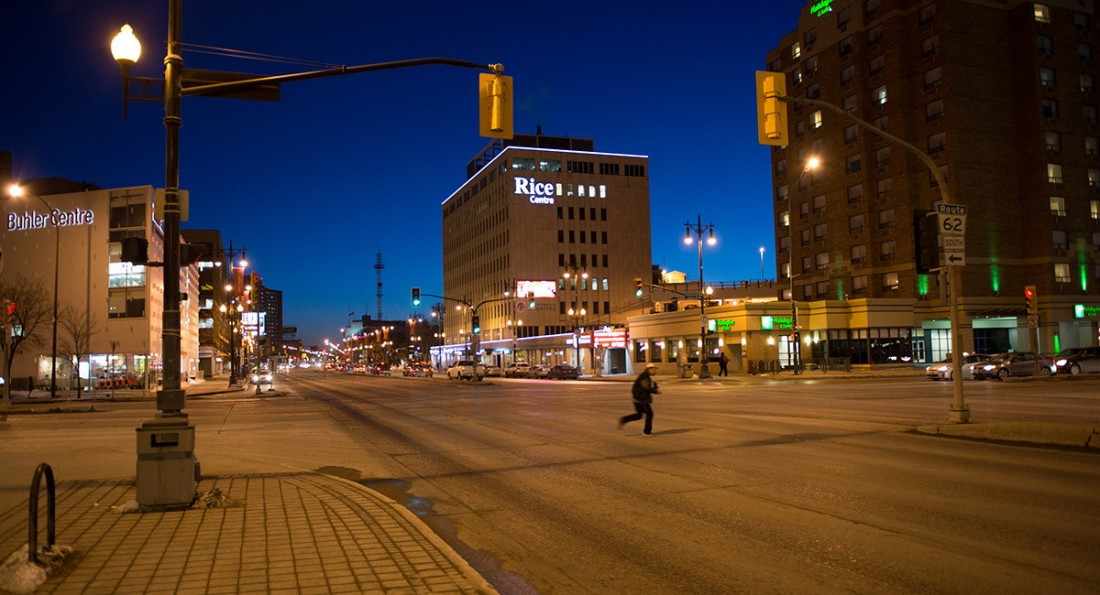Winnipeg’s inner city needs more solidarity, not charity
Some thoughts on how we perceive downtown Winnipeg
Growing up in suburban North Kildonan, any time my family drove into downtown Winnipeg my parents immediately locked the car doors.
Children are far more perceptive than we give them credit for and I learned the lesson quickly: the inner city is a bad place.
This sense of fear of Winnipeg’s downtown is palatable in the suburbs.
As such, I never really ventured downtown while I was growing up, and rarely spent any amount of time in the inner city. Adding to this was the all too common notion that crime and poverty in the inner city is a fait accompli, or the result of some personal defect among each member of the lower classes.
The pervasive apathy and stereotyping on these issues need to be challenged and stamped out if we are to have any viable hope of solving these problems.
Fast forward to the summer of 2008, I was hired as a summer student for the graffiti removal department at the City of Winnipeg. At one point or another, working in this department brought me to every corner of town
Naturally, at some point on the job, I would end up in the dreaded “no go” area of the inner city, reminiscent of those places in which my parents used to lock the car doors.
I can remember one of the first times my then work partner and I got a swath of jobs in the North End. While driving there I was flooded with thoughts and scenarios of gangs, muggings, prostitutes and shootings, but once I got there nothing of the sort happened. On the contrary; it was quiet and dotted with everyday people or kids enjoying the summer, riding their bikes.
Upon seeing we were covering or removing graffiti off of businesses, fences or garage doors, neighborhood people would often engage us in a conversation. These exchanges helped me to relax when I went into the inner city, and cast aside my childhood pretensions.
In a phrase, they helped me realize that, for the most part, the inner city is filled with kind-hearted, decent people trying to live their lives under the shadow of far bigger problems – racism, poverty, addiction, even colonialism – than I ever had or will have to deal with.
My newfound reflections could not possibly wish away or solve such problems, but they profoundly changed how I would react when I heard about crime in these areas.
Instead of it simply being attributed to people in that dreaded “no go” area, I would think “I was just there the other day” – I would think about the people I had talked to, the children I saw in the area. How had the crime affected them? How do they deal with it? Did they know the people involved?
These problems are immense and complicated but not insurmountable. Challenging the pervasive apathy and stereotyping in our own communities is by no means a solution but a simple starting point. These acts of solidarity can be just as effective as any amount of charity.
Scott Price is a student of African history and a researcher at the Oral History Centre at the University of Winnipeg.
Published in Volume 68, Number 2 of The Uniter (September 11, 2013)







